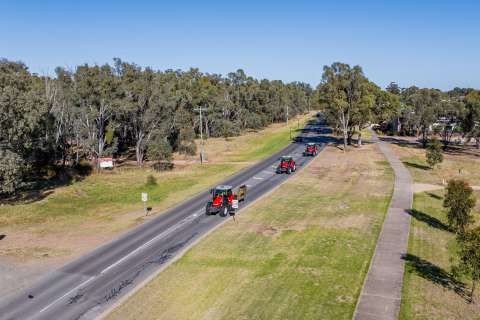Biosecurity and Australian Border Force (ABF) officers at Brisbane Airport recently intercepted two live squirrels, allegedly smuggled in by an Australian resident returning from Bali.
After information about the traveller was received through Border Watch, ABF officers approached the individual at the airport and located the squirrels.
Head of Biosecurity Operations at the Department of Agriculture and Water Resources, Nico Padovan, said the passenger had put the nation’s animal and human health at risk.
“The fact that this passenger would intentionally breach our biosecurity conditions and put our country at risk is unbelievable,” Mr Padovan said.
“Live animals from overseas can carry a range of serious diseases that are dangerous for Australian animals as well as humans.
“Squirrels can carry rabies—which is present in Bali—and if this disease was to arrive here the toll on human and animal health would be huge. Every year more than 60,000 people worldwide die from rabies.
“Biosecurity is no joke and the passenger is now subject to an investigation and could face a range of serious penalties, including criminal prosecution.”
ABF Regional Commander Queensland, Terry Price, said the ABF is committed to protecting both Australian and international wildlife.
“Given Australia’s famed, unique and fragile biodiversity, it is crucial that we do all we can at the border to stop animals from entering Australia that may constitute a disease or other threat,” Regional Commander Price said.
“Further, the smuggling of wildlife is not only illegal but also very cruel and inhumane, with animals often smuggled for extended periods of time without sustenance and in confined space.”
Both squirrels were euthanised due to biosecurity concerns.
The maximum penalty for the biosecurity offences is up to 5 years imprisonment, fines of up to $63,000, or both.
The maximum penalty for wildlife trade offences under Australian law is 10 years’ imprisonment and a fine of up to $210,000 for individuals or up to $1,050,000 for corporations.
People with information about the attempted illegal import of wildlife or who notice any suspicious border related activity should contact Border Watch at .
For more information on Australian biosecurity, visit .
PHOTOS AVAILABLE ON REQUEST








